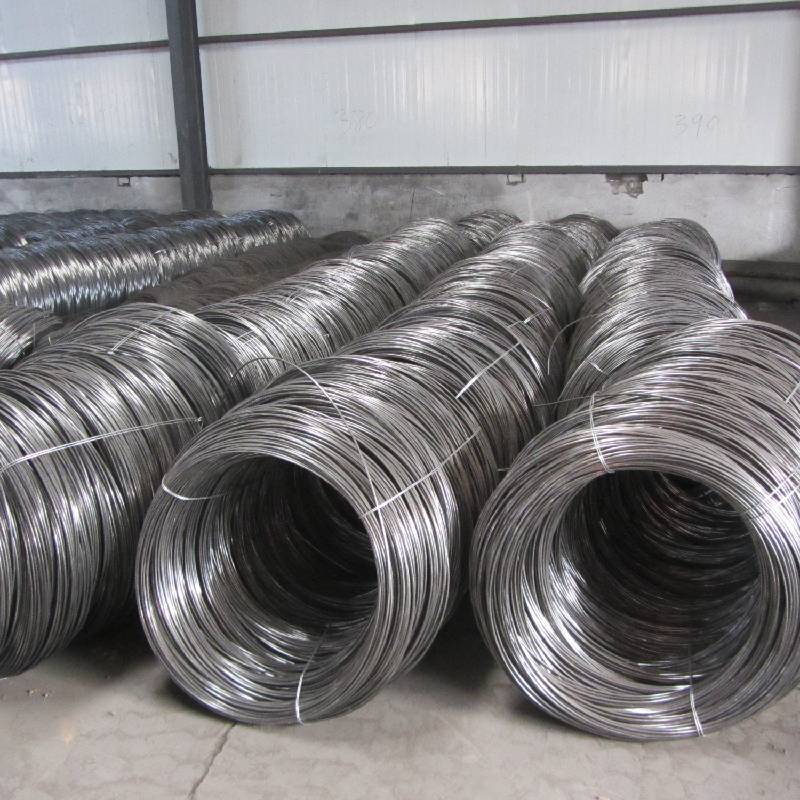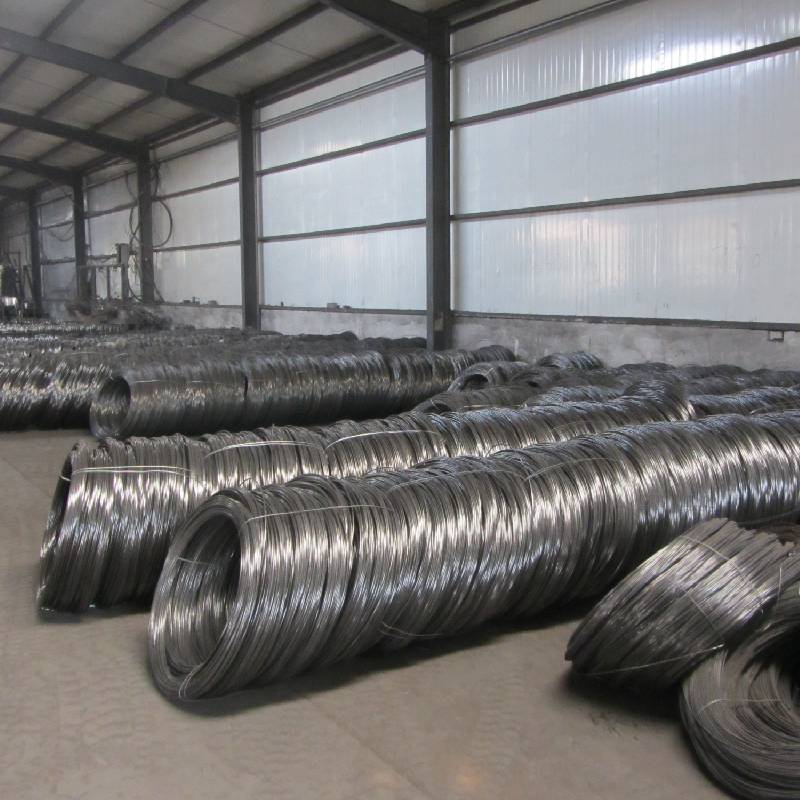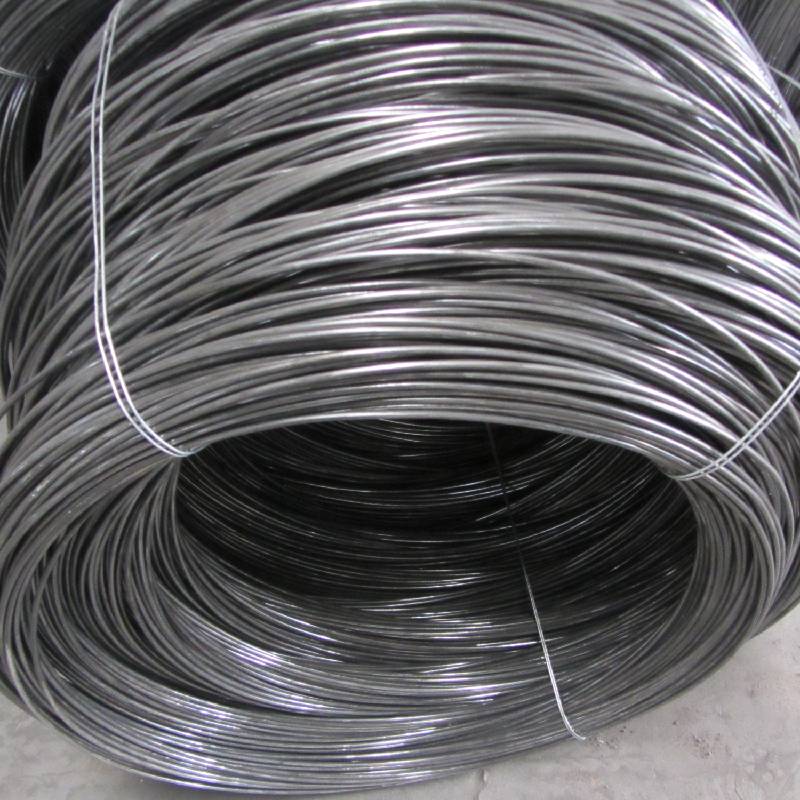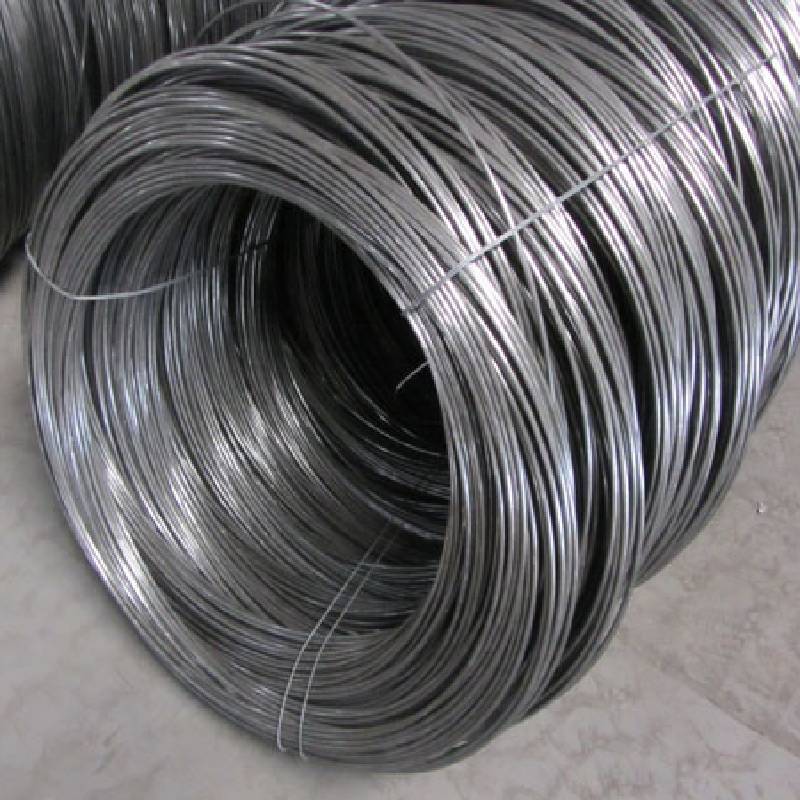In diverse industrial applications, the selection of robust and reliable materials is paramount for operational integrity and longevity. Black Wire, often referred to as annealed wire or soft wire, represents a foundational component across numerous sectors due to its distinctive properties derived from a specialized manufacturing process. This material is characterized by its excellent flexibility, superior ductility, and impressive tensile strength, making it indispensable for tying, binding, and fencing applications, among others. Its black finish is a result of the annealing process, which improves its workability and reduces brittleness, enhancing its overall performance in demanding environments.
This article delves into the critical aspects of Black Wire, providing a comprehensive overview for B2B decision-makers and technical professionals. We will explore its intricate manufacturing process, adherence to stringent quality standards, technical specifications, and a broad spectrum of application scenarios. Furthermore, we will analyze current industry trends, discuss key technical advantages, offer vendor comparison insights, highlight customized solution possibilities, and present compelling real-world case studies. The objective is to equip stakeholders with detailed information necessary for informed procurement and strategic implementation, underscoring the value proposition of high-quality Black Wire in modern industrial operations.
The market for Black Wire is influenced by a confluence of global and regional factors, reflecting evolving demands in construction, agriculture, recycling, and manufacturing. Current trends indicate a significant push towards higher strength-to-weight ratios and enhanced corrosion resistance, even for conventionally uncoated wires, driven by stricter environmental regulations and the need for extended service life in challenging conditions. The construction sector, particularly in emerging economies, remains a primary driver, with increased infrastructure development necessitating vast quantities of tie wire for rebar reinforcement.
Automation in waste management and recycling facilities is also propelling demand for consistent quality Black Wire for baling applications, where wire breakages can lead to costly operational downtimes. Furthermore, the agricultural sector continues to rely heavily on this product for fencing, vineyard trellising, and general binding, with a growing emphasis on materials that can withstand varying climatic conditions without premature degradation. Manufacturers are increasingly adopting advanced annealing techniques and stricter quality control measures to meet these stringent requirements, ensuring consistent mechanical properties and surface finish. The integration of sustainable manufacturing practices, including reduced energy consumption and waste, is also becoming a competitive differentiator in the global Black Wire market.
The production of high-quality Black Wire is a sophisticated process that begins with carefully selected raw materials and progresses through several meticulously controlled stages to achieve its distinctive properties.
To ensure consistent quality and performance, Black Wire undergoes rigorous testing in accordance with international and industry-specific standards. Key testing standards include:
Typical tests include tensile strength, elongation at break, bend tests, and dimensional accuracy checks (diameter tolerance). Visual inspections are also conducted for surface finish, absence of defects, and correct coiling. Traceability systems track each batch from raw material to finished product, providing complete quality assurance.

Figure 1: Illustration of typical Black Wire production stages.
Understanding the technical specifications of Black Wire is crucial for its proper selection and application. These parameters directly influence the wire's performance, durability, and suitability for specific industrial requirements.
| Parameter | Description | Typical Range / Value | Relevant Standard |
|---|---|---|---|
| Material Grade | Low Carbon Steel (e.g., SAE 1006, 1008) | Carbon: 0.05-0.15% | ASTM A510 |
| Wire Diameter | Gauge or millimeter equivalent | 0.7 mm (22 SWG) to 4.0 mm (8 SWG) | ASTM B6; EN 10218-2 |
| Tensile Strength | Resistance to breaking under tension | 300 – 500 N/mm² (MPa) | ASTM A853; EN ISO 6892-1 |
| Elongation at Break | Ductility, ability to stretch before breaking | Min. 15% (for annealed wire) | ASTM A853; EN ISO 6892-1 |
| Yield Strength | Stress at which material begins to deform plastically | Typically 200 – 350 N/mm² | ASTM E8 |
| Surface Finish | Smooth, clean, uniformly black (annealed) | Absence of scales, cracks, or pits | Visual Inspection |
| Coil Weight | Weight per coil/spool | Typically 10 kg to 1000 kg+ | Customer Specific |
These specifications allow for precise material selection based on the stresses, environmental conditions, and handling requirements of the end application. The high ductility and reduced spring-back of annealed wire are particularly advantageous in manual and automated binding operations, minimizing operator fatigue and ensuring tight, secure fastening.
The versatility of Black Wire makes it an invaluable material across a multitude of industries. Its unique combination of strength and workability ensures its critical role in various applications where secure binding, structural reinforcement, or agricultural containment is required.

Figure 2: Black Wire being used for rebar tying in a construction project.
Selecting the right vendor for Black Wire is a critical decision that impacts project efficiency, material costs, and long-term reliability. A thorough evaluation process should consider not only the product's technical specifications but also the vendor's capabilities, quality control, and customer service.
| Criterion | High-Quality Vendor | Standard Vendor | Impact on Project |
|---|---|---|---|
| Product Consistency | Strict adherence to tensile, elongation, and diameter tolerances (e.g., ±0.03mm) across all batches. | Wider variations, occasional non-conformities. | Reduced downtime in automated systems, fewer breakages, predictable performance. |
| Raw Material Sourcing | Verified sourcing from reputable steel mills; full material traceability. | Less transparent sourcing, potential for varied material properties. | Guaranteed chemical composition, optimal mechanical properties. |
| Manufacturing Expertise | Advanced annealing technology, precise temperature/atmosphere control, continuous process optimization. | Basic annealing, less control over microstructure, variable ductility. | Superior ductility, reduced spring-back, ease of handling, longer service life. |
| Certifications & QA | ISO 9001, specific product certifications (e.g., ASTM, BS, EN), in-house testing labs. | Minimal certifications, reliance on basic external tests. | Assured compliance, reduced risk of material failure, enhanced project safety. |
| Customization & Support | Offers tailored diameters, coil weights, packaging, technical consultation. | Limited standard products, minimal technical support. | Optimized solutions for unique project needs, expert guidance, long-term partnership. |
When evaluating suppliers, it is imperative to request material test reports (MTRs), inquire about their quality assurance protocols, and ideally, conduct site visits or request samples for independent testing. A vendor with established industry reputation, transparent processes, and robust customer support will prove to be a more reliable partner for consistent supply of high-performance Black Wire.
While standard Black Wire products serve a wide array of applications, specific industrial requirements often necessitate customized solutions. Leading manufacturers understand this need and offer tailored options to optimize performance, integrate seamlessly into existing operations, and meet unique project specifications.
Engaging with a manufacturer that possesses strong technical capabilities and a flexible production line allows businesses to procure Black Wire solutions that are perfectly aligned with their operational demands, often leading to improved efficiency and reduced long-term costs.
A major contractor undertaking the construction of a metropolitan railway system required high volumes of consistent quality tie wire for securing rebar cages. The project involved extensive use of both manual and semi-automated rebar tying tools. Initial challenges included wire breakages due to inconsistent tensile strength and excessive spring-back, leading to worker fatigue and slower tying speeds. Upon switching to a supplier providing premium Black Wire conforming to ASTM A853 standards, specifically optimized for ductility and low spring-back, the contractor observed a 20% increase in tying efficiency. Wire wastage due to breakages decreased by 15%, significantly contributing to project budget adherence and timely completion of concrete pours. The superior workability of the annealed wire also led to a measurable reduction in reported ergonomic issues among the tying crew.
An industrial recycling plant processing mixed municipal waste faced frequent issues with their automatic baling machines, primarily wire snapping during compaction cycles. This resulted in costly machine stoppages, production bottlenecks, and increased maintenance overhead. After a detailed analysis, it was determined that the inconsistent mechanical properties of their existing Black Wire were the root cause. The plant collaborated with a specialized wire manufacturer to procure custom-spooled, high-tensile, highly ductile Black Wire, specifically engineered for automatic balers. The new wire demonstrated exceptional elongation at break and a uniform diameter. Post-implementation, the facility reported a 90% reduction in wire-related machine jams and breakages over a six-month period. This improvement translated into an estimated 10-15% increase in throughput and substantial savings in operational costs and maintenance.

Figure 3: Black Wire in baling applications for recycling.
At Tikemetal, our commitment to providing superior Black Wire solutions is underpinned by a robust framework of quality assurance, industry certifications, and unparalleled customer support, ensuring complete trustworthiness and reliability for our B2B partners.
Tikemetal prioritizes efficient order processing and timely delivery. Our streamlined production processes and robust logistics network ensure competitive lead times for both standard and customized Black Wire products. We maintain strategic inventory levels for common gauges and specifications to facilitate rapid fulfillment, supported by a dedicated logistics team that manages global and domestic shipments.
All Tikemetal Black Wire products are backed by a comprehensive material and manufacturing defect warranty. We guarantee that our products meet or exceed the specified technical parameters and industry standards at the time of delivery. Any non-conformity to agreed specifications will be addressed promptly through replacement or appropriate compensation, underscoring our confidence in product quality.
Our commitment extends beyond product delivery. Tikemetal offers dedicated technical support and after-sales service, including expert consultation on product selection, application guidance, and prompt resolution of any post-purchase inquiries or issues. Our team of experienced engineers and customer service professionals is readily available to ensure seamless integration and optimal performance of our Black Wire solutions in your operations.

Figure 4: Quality inspection of Black Wire for consistent diameter and finish.
Black Wire stands as a testament to the enduring value of well-engineered materials in industrial applications. Its distinct properties—high ductility, consistent tensile strength, and ease of handling—derived from a precise annealing process, make it an indispensable choice for construction, recycling, agriculture, and various manufacturing sectors. By understanding its detailed manufacturing process, adhering to stringent technical specifications, and leveraging customized solutions, industries can optimize their operations, enhance efficiency, and ensure the long-term integrity of their projects. Partnering with a reputable vendor that emphasizes quality control, offers robust support, and possesses extensive industry experience is paramount for securing reliable and high-performance Black Wire solutions that meet the evolving demands of today's dynamic global markets.
RELATED PRODUCTS